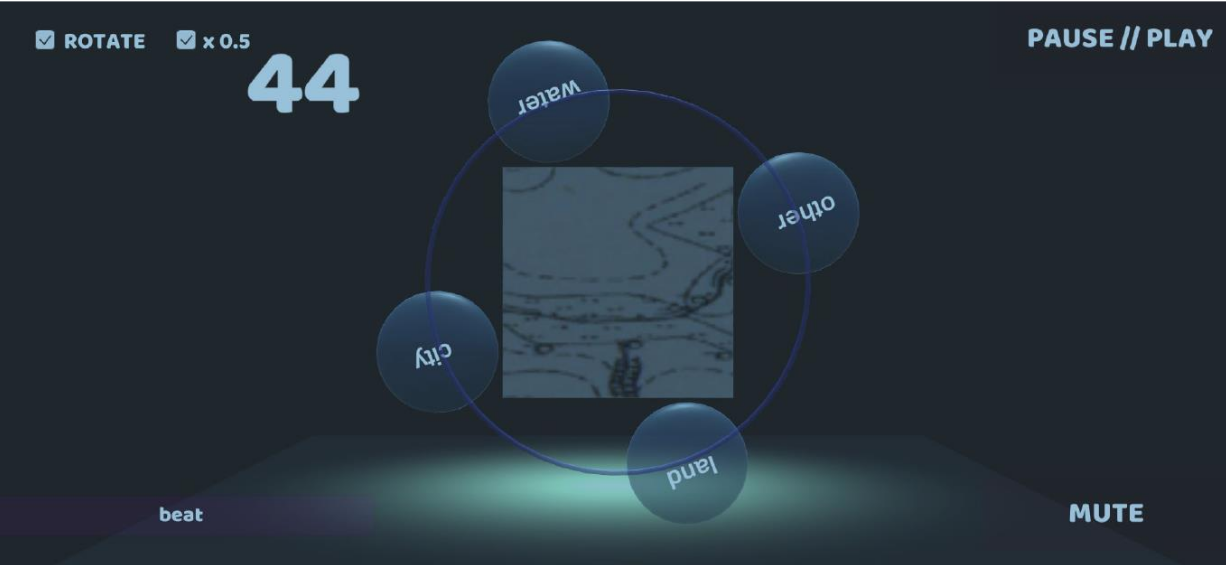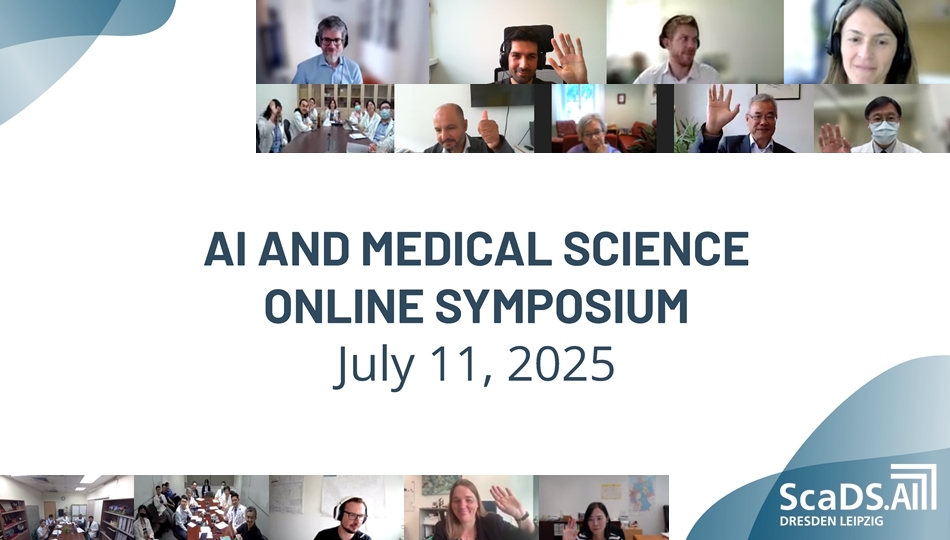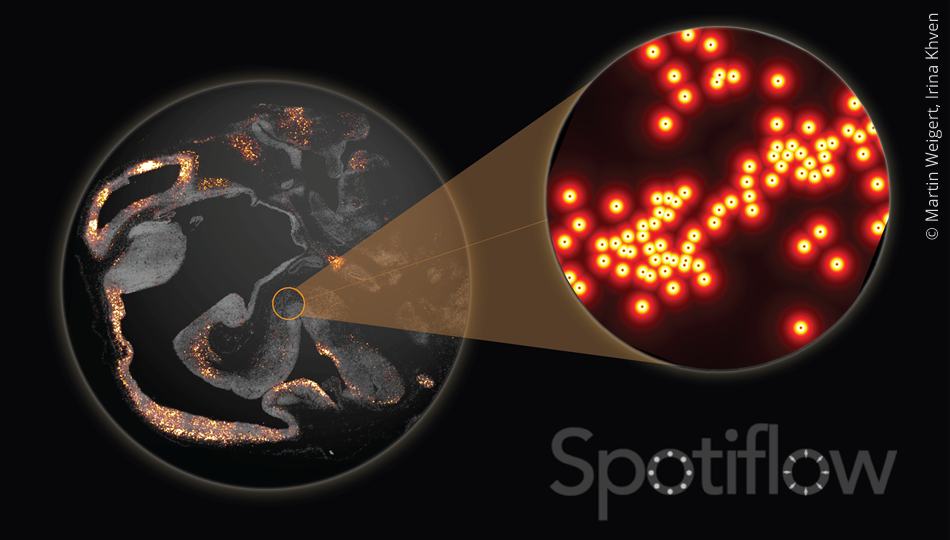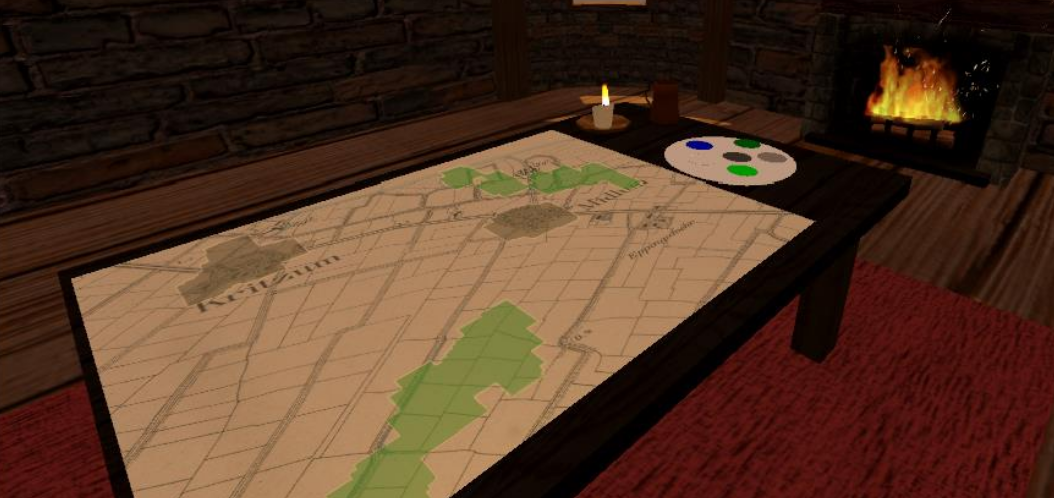
29. October 2019
Gamification of Ground-Truth Data Generation

The team project of the Computer Graphics and Visualization Chair in the summer semester 2019 deals with the motivating acquisition of Ground-Truth data using a gamification approach. Ground-Truth data is needed for many machine learning algorithms and has to be created manually in many cases. This is a very time-consuming and tedious task. The application for this project was the segmentation of cities on maps. In order to make annotating maps more motivating, the students of the team project had the task to develop games that produce annotated maps. This resulted in four games that made it possible to annotate several labels.
Map-O-Gra VR
Maps are painted with the help of a palette of colors in a relaxing and cosy atmosphere of a medieval room in Map-O-Gra VR. Trees and buildings grow from the painted areas, depending on the chosen color (label). To make the whole game even more immersive, this game is realized in Virtual Reality using the Unity game engine.

Fight for Glory
A more strategic approach was chosen for Fight for Glory, in which the annotated cities must be defended against an AI opponent. The annotated labels change the terrain properties and generate revenue for the city which can be used to buy defense technology. This game is played mobile on a tablet and was developed using the Unreal game engine.
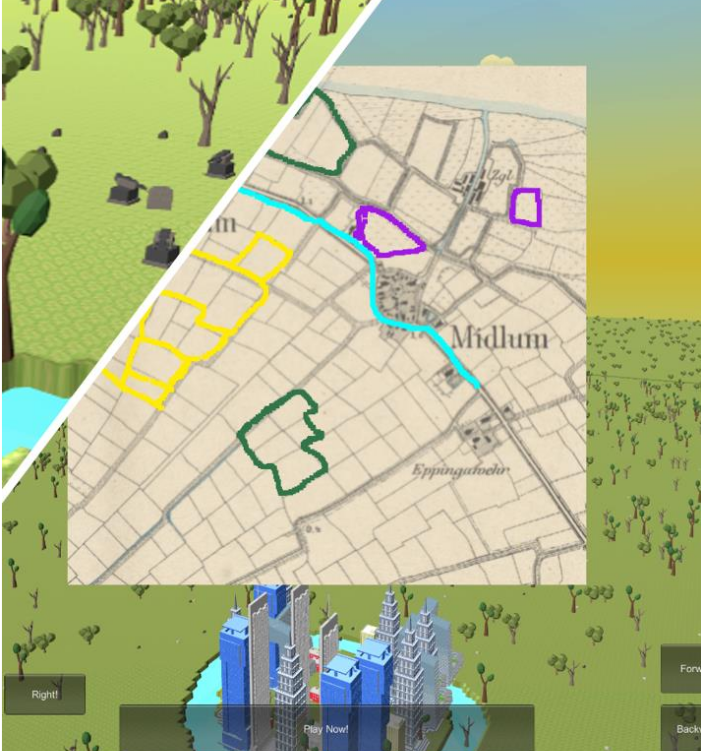
Beatable Virtual Reality
Another game that uses the advantages of virtual reality for motivating map annotation is Beatable VR. The player has to paint city borders with a laser in the beat of a song. With this game idea it is possible to annotate many maps in a short time. In addition to the VR version, there is also a desktop version that can be played with the mouse. The game was implemented with the Unreal game engine.
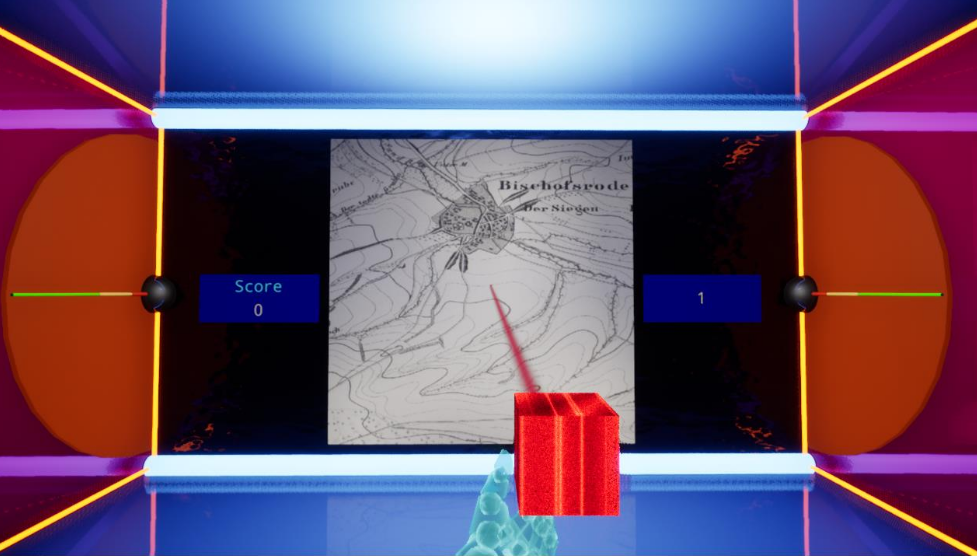
Beatable Touch
Beatable Touch is also a music-based game, but can be played on mobile devices using touch gestures. The player classifies image sections to the beat of a song by dragging the image section onto the appropriate label. A lot of data can be generated with this approach. In addition, the game is generally applicable to classification tasks of images. It was implemented with the Unity game engine.
